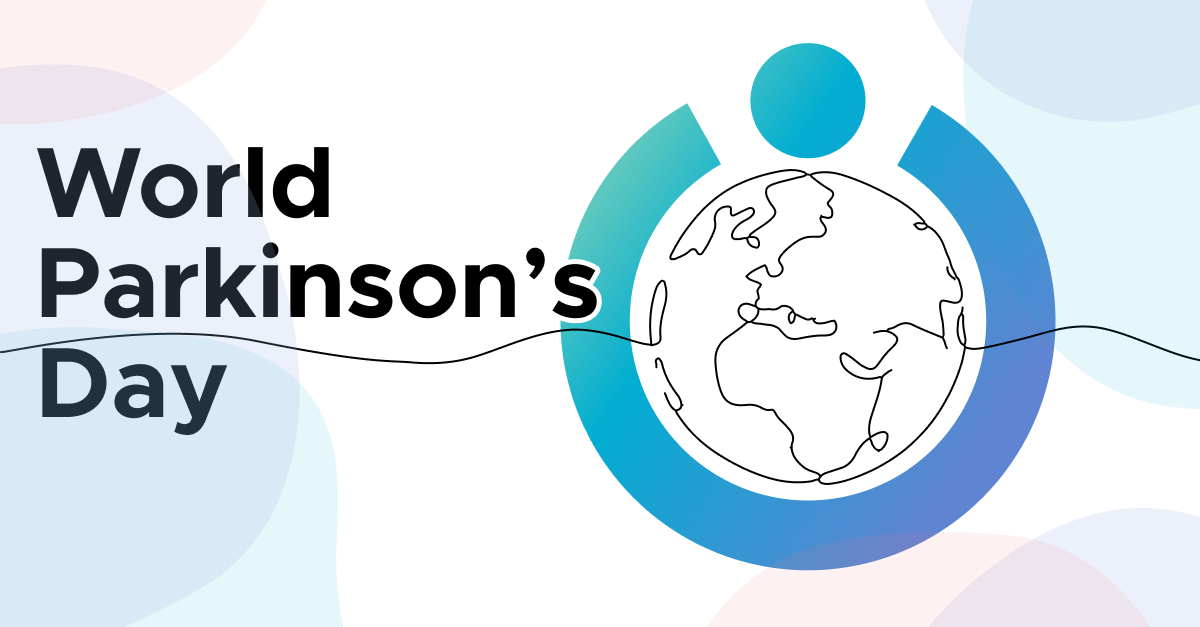
World Parkinson's Day is Friday 11th April 2025.
James Parkinson’s ‘Essay on the Shaking Palsy’, published in 1817, recognised Parkinson’s as a medical condition for the first time. We mark his birthday every 11 April with World Parkinson’s Day, a day to shine a spotlight on Parkinson’s and our community.
Together, we can create a greater understanding of the challenges people with Parkinson’s and their loved ones face. And it’s a brilliant opportunity to raise funds for research and support services.
About Parkinson's
People with Parkinson's don't have enough of the chemical dopamine in their brain because some of the nerve cells that make it have stopped working.
Around 153,000 people live with Parkinson’s in the UK. And it's the fastest growing neurological condition in the world.
What is ‘Parkinson’s disease’?
Parkinsonism is a term that covers several conditions, including Parkinson’s and others with similar symptoms. Some, including healthcare professionals and people with the condition, call it Parkinson’s disease, or PD for short.
We call it Parkinson’s. We don’t use the word ‘disease’ because some people with Parkinson’s have told us it sounds negative, or like an infectious illness. But unlike the flu or measles, you can't catch Parkinson's from someone.
We don't yet know exactly why people get Parkinson's. Researchers think it's a combination of age, genetic, and environmental factors that cause the dopamine-producing nerve cells to die.
What are the symptoms of Parkinson's?
Common symptoms of Parkinson's included:
- Tremor
- Rigidity (stiffness)
- Slowness of movement
- Mild memory and thinking problems
- Sleep problems
- Pain
- Mental health problems, including anxiety and depression
But not everyone gets these symptoms. People will have different experiences of how their condition changes or progresses. How Parkinson's affects someone can change from day to day, and even from hour to hour.
You may hear Parkinson's symptoms referred to as motor symptoms and non-motor symptoms.
Motor symptoms affect your movement and balance. They include tremor, stiffness and slowness of movement.
Non-motor symptoms affect you in other ways that may not be easily seen by other people. They include pain, sleep problems and mental health issues.

This world Parkinson's Day, make positive change happen for people with Parkinson's by raising awareness.
Light up blue
Every year, ParkinsonsUK ask iconic buildings, landmarks and homes across the UK to light up blue for World Parkinson's Day to shine a light on people with Parkinson's, and the people who love and care for them.
How to get involved
Make it blue - Whether it's at the office, school, or your community centre, show your support and make a difference by making your event blue. Using the colour blue as part of your raising awareness event is a great way to show you are raising awareness for the Parkinson's community
Dyeing your hair blue - Go bold with a temporary blue hair dye!
Bake it blue - Make your coffee morning or bake sale blue by adding some blue food colouring to your sweet treats, paired with blue napkins or plates.
Share - Share your blue-themed day with us on social media using #WorldParkinsonsDay and tag @ParkinsonsUK
For more information or how to get involved visit World Parkinson's Day | Parkinson's UK
